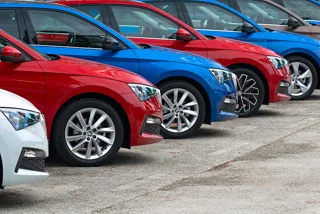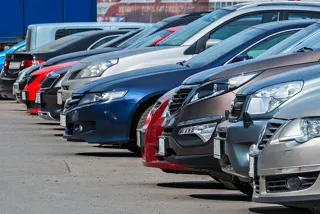A reduction in the number of people driving their own car for business travel needs to be central to the decarbonisation plans of the public and private sectors.
So says the Urban Mobility Partnership, which has launched a policy paper on Corporate Travel and Commuting.
The paper calls for businesses and public sector organisations to urgently reduce the usage of the so-called grey fleet in line with decarbonisation agendas.
It also identifies the problems of relying on personal private car usage for business travel and offers key recommendations on how to reduce this and offer employees sustainable alternatives.
Steve Stewart, founding member of the Urban Mobility Partnership, said: “As we look to recover from the pandemic and with many people returning to the office in some form, we want to ensure that sustainability and decarbonisation are at the forefront of business travel and commuting practices.”
The policy paper calls for an urgent examination of the national tax system around business travel offers practical guidance on how to promote alternative ways of commuting to the private car.
“We look forward to working with stakeholders across the country to help employees make that shift,” continued Stewart.
“There's a real opportunity for businesses, local and national Government to work together to achieve their decarbonisation plans, support economic recovery, and to move towards a sustainable, multi-modal transport future.”
The Urban Mobility Partnership says that grey fleet reduction should be a key part of all local authorities and combined authorities’ clean air and transport plans.
It wants the requirement for employees to have access to a private vehicle to be removed from all employee contracts.
Furthermore, it says that businesses should assess the variety of alternatives to grey fleet and work with local public transport providers, daily rental, car club and active travel providers to make alternative modes more accessible.
It is also calling for interventions to national policy, including using the tax system to incentivise a move away from grey fleet practice, such as tax-free mobility credits, to be used on sustainable modes of travel, and amending the rules around benefit-in-kind (BIK) tax to be updated to allow flexibility for sustainable travel innovation.
In addition, it says that Government departments should provide guidance to public sector bodies and local authorities on how to provide alternative transport methods to cut costs and reduce environmental impact.






















Login to comment
Comments
No comments have been made yet.